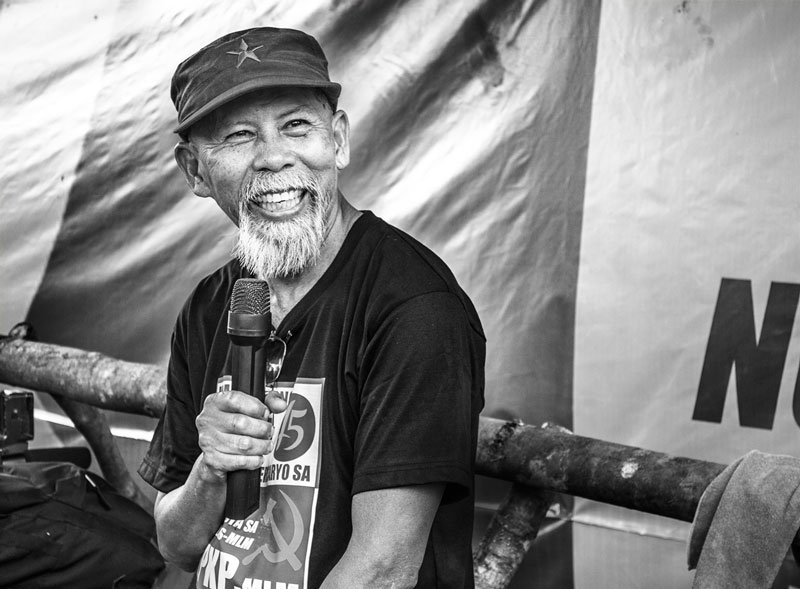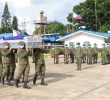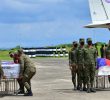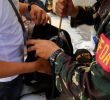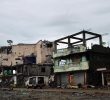DAVAO CITY—Philippine Army soldiers landed on the shores of Hijo beach in Madaum, Tagum City on the first Friday of June, ferried by Navy ships straight from Luzon.
These soldiers from the 84th Infantry Battalion (IB) are the second batch under the 10th Infantry Division (ID) to arrive in less than two weeks. Members of the 71st IB also landed in Hijo beach on May 24.
An ABS-CBN report said that the 84th IB is more concerned about community development endeavors rather than gunfighting. The same report said half of the new arrivals were from Mindanao, and that many members of the battalion were veterans of peace-keeping missions in Africa and Haiti.
This was contrary to the assignment of the 71st IB, which was to beef up operations against the New People’s Army (NPA), particularly to chase down those who launched an ambush in Maragusan town, Compostela Valley province a day after the May 10 election and to rescue the four government troops that were captured in the same province.
In a statement posted by the Philippine Army, Maj. Gen. Carlos Holganza, commander of the Army’s 10th Infantry Division, gave the members of the 71st IB orders to protect the people and bring stability in the region. “The arrival of new troops will not mean war but enhanced security measures to protect our people,” he assured. “We have to put criminals behind bars. The troops that will be arriving will also ensure that peace and development efforts will be paramount and that the rights of the people will be respected at all times,” Holganza said.
Troops of 84th Infantry Battalion disembark from Philippine Navy Ships in Madaum, Tagum City. (photo from 10th ID)
Army officials said more soldiers from the Special Forces, Scout Ranger are set to arrive in the region in the coming weeks. They will be followed by members of the engineering brigade, the medical corps, and members of the Civil Military Operations
Governor Arturo Uy of Compostela Valley and his brother Tagum City Mayor Rey Uy were on hand to welcome the troops of the 71st IB who established their base within the perimeter of the province.
The governor denied that the arrival of the new troops was a sign of militarization. “The presence of additional armies will strengthen the security of our province. Their presence will never be a threat,” Uy said.
Human rights group Karapatan warns against additional troop deployment in Davao, saying this will aggravate “military-perpetrated rights abuses and violations of the International Humanitarian Law (IHL).”
“Intensified military operation results in forcible evacuations of communities, indiscriminate firings and bombardments in civilian communities, enforced disappearances, illegal arrests and detentions, and other forms of violations of the IHL,” said Kelly Delgado, Karapatan Davao region secretary-general, in a press release.
Karapatan blames the AFP for the 12 cases of extrajudicial killings in the region in 2009 and the total of 106 victims since Arroyo rose to power in 2001. Delgado added that with the run-up to the government counter-insurgency program Oplan Bantay Laya’s 2010 deadline, the number of extrajudicial killings will increase
Early in May, AFP chief Delfin Bangit admitted that the military would not be able to meet the June 2010 deadline set by President Gloria Macapagal-Arroyo four years ago to defeat the insurgents.
In an article from the Philippine Daily lnquirer, Bangit said government soldiers have made considerable gains in decreasing NPA strength and numbers. However, insurgency could only be defeated if its root causes were addressed, he said. “We have to go back to addressing poverty, improve the services for health, literacy,” Bangit said. “If we list the causes of insurgency, you will see that many do not call for a military solution.”
The AFP considers Davao one of its ‘national priority areas’, a region where they believe the presence of armed groups is strong enough to jeopardize national security and development. (CJ Kuizon/davaotoday.com)

